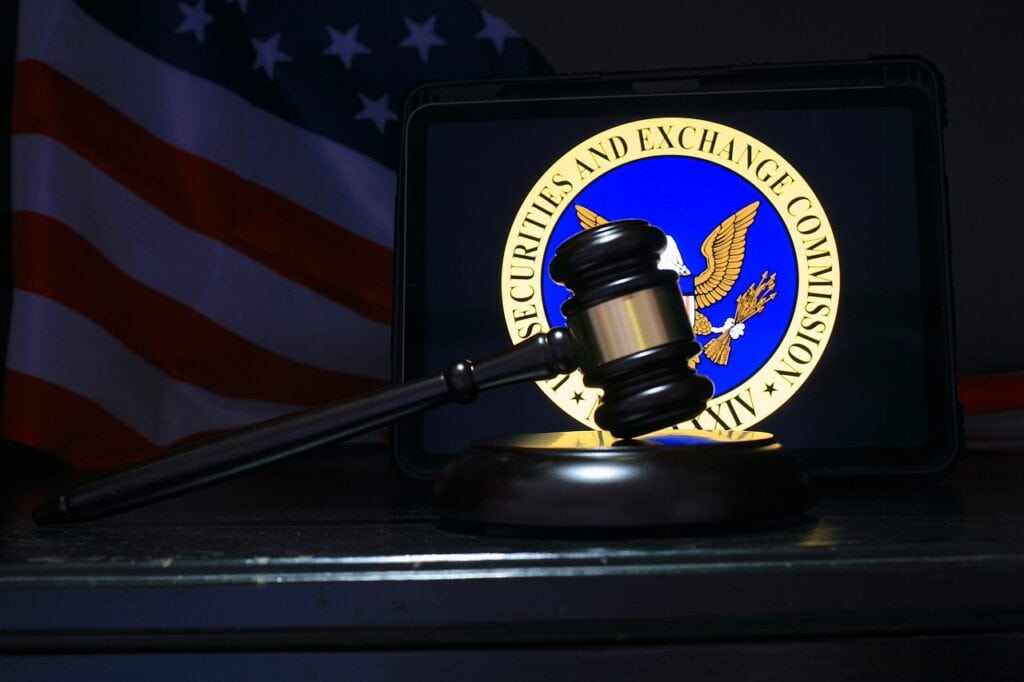Amicus Briefs
SEC v. Jarkesy
CASE SUMMARY
George Jarkesy was adjudicated by an Administrative Law Judge (ALJ) who was improperly insulated from removal. Mr. Jarkesy was also denied his jury trial rights and equal protection of the law, among other problems. The U.S. Securities and Exchange Commission (SEC) Final Order appealed in this case was issued seven years after his administrative proceeding ended, which puts the lie to the notion that ALJ proceedings save time.
George R. Jarkesy, Jr. was an investment professional and host of a nationally syndicated talk-radio program at the time when SEC conducted its administrative proceeding against him. He raised a constitutional claim against the SEC’s ALJs, who enjoy multiple layers of protection from removal by the President. In an earlier precedent called Free Enterprise Fund v. Public Co. Accounting Oversight Board, the Supreme Court made clear that officers of the U.S. may not be insulated from removal by multiple layers of protection without running afoul of the clause in Article II of the Constitution that requires the President to “take Care that the Laws be faithfully executed.”
In addition to dismissing Mr. Jarkesy’s constitutional removal claim, SEC violated his Seventh Amendment jury-trial rights as well as the equal protection component of the Fifth Amendment’s Due Process Clause. The Dodd-Frank Act empowers SEC to obtain a jury trial by suing in federal court or avoid a jury trial by initiating an administrative proceeding. Enforcement targets, like Jarkesy, do not have a similar option. Thus, the law unfairly deprives them of the same right to demand a jury trial that SEC has—a blatantly discriminatory rule.
In June 2024, the Supreme Court ruled in SEC v. Jarkesy that the Seventh Amendment jury trial right applies to administrative proceedings, a historic NCLA victory.
OUR TEAM
RELEVANT MATERIALS
NCLA FILINGS
Opinion of the U.S. Supreme Court
June 27, 2024 | Read More
Brief Amicus Curiae of the New Civil Liberties Alliance in Support of the Respondents
October 18, 2023 | Read More
Petition for a Writ of Certiorari
March 8, 2023 | Read More
Opinion of the U.S. Court of Appeals for the Fifth Circuit
May 18, 2022 | Read More
SEC Statement Relating to Certain Administrative Adjudications
April 5, 2022 | Read More
PRESS RELEASES
Seven Supreme Court Victories Underscore NCLA’s Success in Limiting Unlawful Administrative Power
August 19, 2024 | Read More
In NCLA Amicus Win, Supreme Court Restores Americans’ Rights to Trial by Jury
June 27, 2024 | Read More
NCLA Amicus Brief Decries SEC’s Administrative Denial of Jury Trial Rights, ALJ Removal Protections
October 19, 2023 | Read More
SEC Proceeding Violated Constitutional Right to Jury and Vesting & Take Care Clauses, 5th Cir. Rules
May 18, 2022 | Read More
NCLA Amicus Brief Criticizes Removal Protections and Lack of Jury Trials in SEC ALJ Proceedings
March 19, 2021
IN THE MEDIA
How Washington Can Finally Get Back to Fiscal Sanity
January 20, 2025
The Two Holdings of Securities and Exchange Commission v. Jarkesy and What They Mean for the Future of Administrative Adjudication
NCLA Blog
January 17, 2025
Big Government’s License to Kill Space Travel
October 4, 2024
The Supreme Court's Jarkesy decision is about keeping promises
July 9, 2024
Chief Justice Roberts’s Two Landmark Opinions Turn Tide Toward Liberty
July 3, 2024

